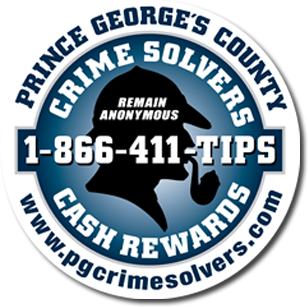
Remain Anonymous
See Something, Say Something
How do I remain anonymous?
When you call the toll-free tip hotline, you will not be asked for your name, where you live, or how you got the tip. The call center does not have caller ID or electronic recording devices. You will be given a confidential "tip number" that corresponds to the crime being reported. Your confidential “tip number” is what you will use when checking on the status of your tip or picking up your reward.
What happens to my information after I provide it?
After you give us your information, we create a report that brings together all the information you provided. We check to make sure that the report contains no information that might identify you.
The report is sent will be sent to the appropriate law enforcement agency who will investigate the information. They have the legal responsibility to investigate the information prior to acting on it to ensure the information is correct and not given to us maliciously in order to set someone up. The police cannot get a search warrant or make an arrest based solely on a tip; there must be other intelligence to support the Crime Solvers information.
Once the information has been researched, the police will allocate it to the appropriate officer or detective to handle the information. This could mean more research or it could mean action will be taken.
How does the online submission process work?
When you submit a tip through our website, your form is sent using state of the art software through a Secure Socket Connection (SSL). Tips submitted through this website are encrypted, entirely confidential, and completely anonymous and are immediately and securely transferred directly to our Crime Solvers offices. After submitting your tip, you will be provided with your own unique ID number that you will use when checking on the status of your tip or picking up your reward.
Isn't using E-mail to submit a tip the same as using the online submission form?
Quite simply, the answer is NO. E-mail transmissions are not secure and will not protect your anonymity. Although E-mail transmissions are an effective method of communication, they pass through several servers prior to arriving at their final destination and are subject to possible hijacking, hacking or other forms of malicious attack. To submit a tip online, be sure to use our submit a tip page.
Am I eligible for a reward for information that I've already given to the authorities?
If you have information that will help solve a crime and you want to be eligible for a reward,you must call the Crime Solvers toll-free tips hotline first.
When will Crime Solvers pay a reward?
If a caller's information results in the arrest and the filing of criminal charges against a felony crime offender or the apprehension of a felony fugitive, the caller can receive a cash reward not to exceed $2,500. All rewards are determined and approved by the Board of Directors.
Who decides if a reward will be paid?
The Crime Solvers Board of Directors, made up of volunteers from throughout the area, meets on a monthly basis to evaluate arrests and to decide on the size of rewards to be paid "up to $2,500." Crimes related to homicides, rapes, 1st degree sexual assaults, or crimes authorized by the Chief of Police are eligible for rewards of "up to $25,000."
How is the amount of the award determined?
The reward amounts are determined by the Crime Solvers' Board of Directors at their monthly meeting. The board reviews each reward recommendation based upon the severity of the crime and with input from the law enforcement agency that is investigating the case.
Where does the reward money come from?
Prince George’s County Crime Solvers operates with funds obtained through fundraising events.
How long does it take to get a reward?
The entire process, from the time of the arrest and indictment until the reward is ready to be picked up, can take up to 60 days.
Will I have to report my reward money to the I.R.S.?
No, in 1986 the I.R.S. made a ruling exempting Crime Solver programs from having to collect personal information on callers in order to collect their rewards. Since 1979, our program has handed out nearly $500,000 in rewards at no taxpayer expense.

